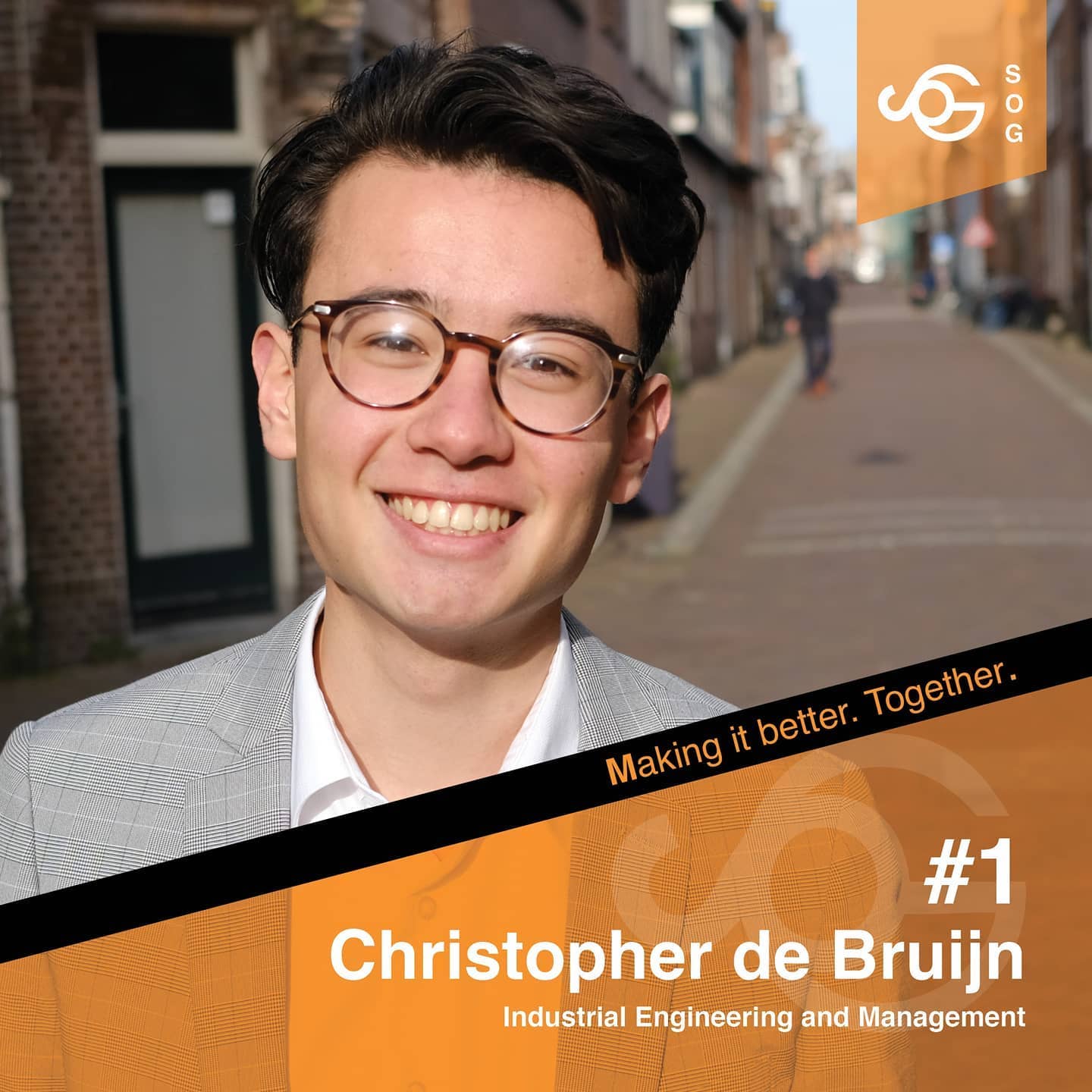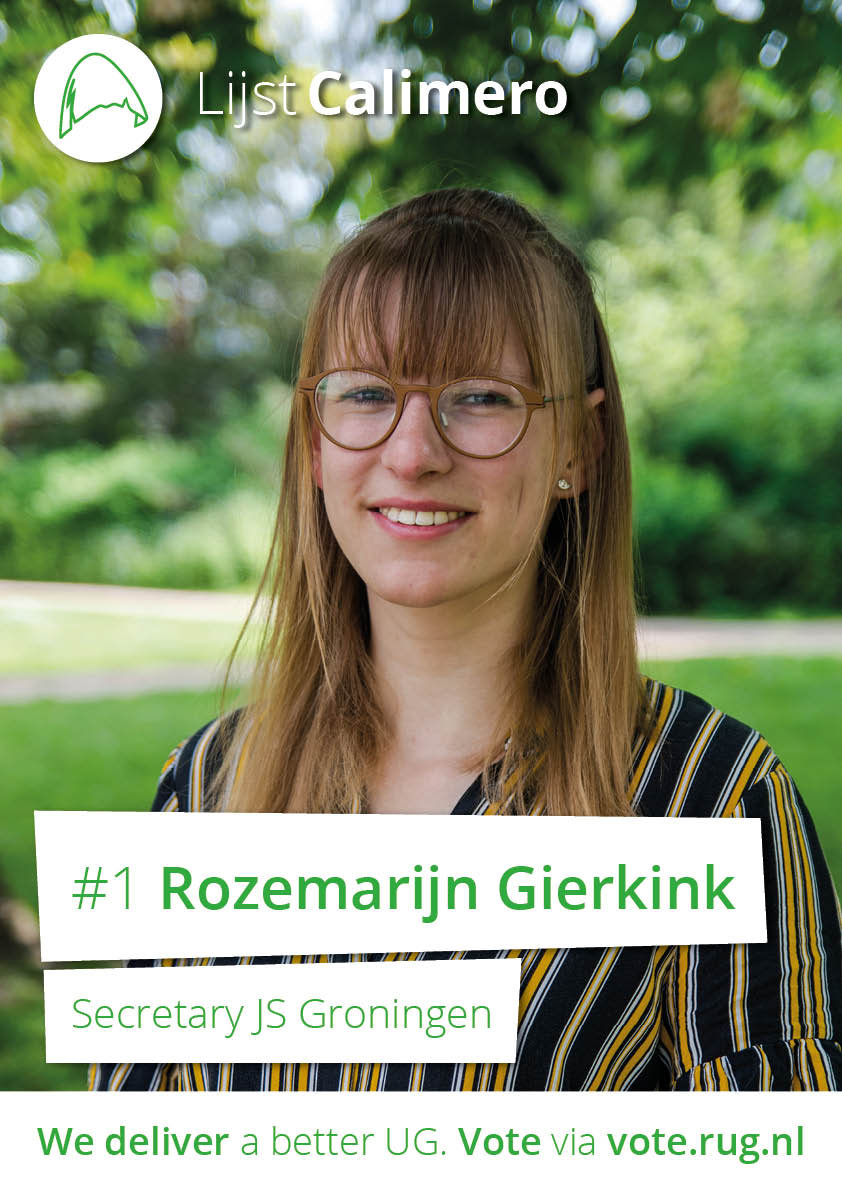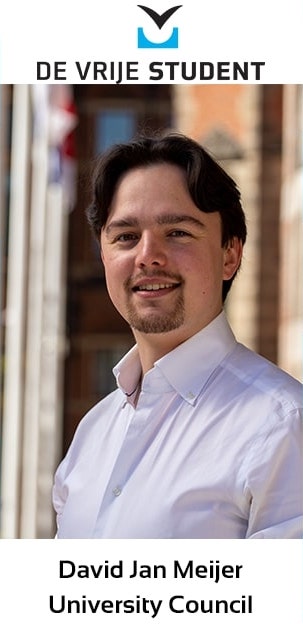Election Week Q&A

Have you voted yet? Yes? Awesome, then you can move on to these blogs about recipes or bicycles or simply check out this page with wholesome memes. No? Then go to vote.rug.nl and do so before Friday! You have no idea what I am talking about or you need more information on who/why/what/when/how to vote? Take a seat, pour yourself a cuppa and continue reading this blog. It’s election week at the UG which means that students have the right to vote for the University/Faculty Council. The elections take place once a year, run for the entire week and usually involve a bunch of flyer-tossing students that try to catch you on your way to class. But what are these councils good for? Are important decisions actually made there or are the students running for a spot just trying to boost their CV? As it is a bit hard to ask the candidates personally this year due to the campaign week being moved online, I’ll try to answer some of these questions in this Q&A and give you a short overview of who you can vote for and why you should make your voice heard.
1) What does the University/Faculty Council do?
Well, there are a few things. Generally speaking, the council is supposed to represent the academic community in important decision-making processes. It consists of twenty-four members: twelve elected from and by the students each year, and twelve from and by the staff every other year. There are three key-rights afforded to the members of the council, which they can use within their function. First, the council has the right to discuss all matters related to the university and submit proposals (in the form of memos) to make its views known. In practice, this means that the student and staff representatives can ask the board of the university anything that is somehow university-related or, they can submit their own ideas on how to improve certain policies or practices. In addition to this, the University Council has advisory powers. What this essentially means, is that the board of the university has to formally seek advice from the council and consider the opinions of the representatives in matters related to the budget, restructuring or tuition fees (to name a few). Finally, the members of the University Council also have a right to vote on certain matters which require the council’s prior consent. These include, for example, all matters related to the binding study advice, study loan resources, working conditions or the main features of the annual budget. So as you can see, there are actually quite a few things that the University Council can impact, and the job of a council member is certainly not always easy. Most students that get elected decide to take a year off to solely focus on council work as there are lots of documents to be read and meetings to be had in order to make informed decisions. If you want to have more detailed information on all the competences of the council I suggest checking out this page.
Next to the University Council, students are also able to vote for their respective Faculty Council. The Faculty Councils work in a similar way to the University Council, just on a faculty level. For more information on the different Faculty Councils, you can go here. Having discussed the basics, let’s now have a look at how and who you can vote for!
2) Who can I vote for and how does it work?
This year there are four parties running for University Council elections. Usually, the first five to six people on the candidate list of each party have a realistic chance of winning a seat in the council. You can vote for anyone on the list, but the vote ultimately goes to the party which assigns the total number of seats won according to the order on their list. For instance, if one party wins three seats, the first three persons on their candidate list will go into the council. In total, there are 12 student representatives in the University Council all of whom are appointed for a term of one year. The number of student representatives and parties within the Faculty Councils may vary depending on the faculty, but their term is also limited to one year. Voting can be done online.
With so many parties and candidates to choose from, it can be easy to lose track of who is running and what they stand for. To help you get a quick overview, I reached out to all parties running for the University Council and asked them to answer three basic questions. If you can’t be bothered to think about serious policies and politics at the moment you can also check out this comical take on what type of students the parties would be if they were a real person.
Studenten Organisatie Groningen (SOG)

1) What are 3 things you want to change in the next year?
- Protect active student life, especially in times of corona;
- Achieve a more conscious fashion of internationalization;
- Integrate sustainability at all levels of the university.
2) How do you distinguish yourselves from other parties?
Contrasting itself from other parties, the SOG particularly emphasizes the importance of active student life. Developing yourself through experience with committees, boards, sports, politics, jobs and other extracurricular activities should be actively encouraged and pursued.
To make this development possible for all students, we campaign for academic freedom by increasing the flexibility of academic schedules to allow students to partake in extracurricular activities next to their studies.
3) How will you achieve these goals?
The SOG is the only student party in the University Council that has for decades strived for harmonious cooperation between all involved actors in decision-making. The University of Groningen is unique due to its harmony model, meaning that opinions are always asked, and we always strive for a good consensus before important decisions are made. The SOG is a strong believer in this model, as real change can only come through for students when the University is not working against itself, but working together towards improvement.
Lijst Calimero

1) What are 3 things you want to change in the next year?
- Organize a research platform where students can find opportunities for joining research.
- Reduce the international marketing budget as it's ridiculous to ask students to come here if there's no available housing.
- More innovative psychological support for students in the wake of the corona-crisis
2) How do you distinguish yourselves from other parties?
Lijst Calimero is critical yet constructive, we get results. We have student interests at heart and we are not afraid to say 'no' to the board if necessary. We're the party for quality of education, which, bottom line, is what we are all here for.
3) How will you achieve these goals?
We are a frequent writer of memos: with policy initiatives that student representatives can hand in. Additionally, we stay in contact with students, Faculty Councils and associations to create a bottom-up approach to issues instead of a top-down. With the support of students, we can get a lot done!
Democratische Academie Groningen (DAG)

1) What are 3 things you want to change next year?
- implement anti-racist and anti-discrimination policies at the UG
- reduce our carbon footprint, implement a long-term strategy on becoming carbon-neutral
- small-scale education
2) How do you distinguish yourselves from the other parties?
In comparison to the other parties, DAG is not just a council party but rather a broad student movement that also takes part in activism, cooperates with other groups, organises debates, trying to inform ourselves and others thus making people more politically aware.
3) How will you achieve these goals?
DAG wants to launch a broader debate within the student community on how we want our university to look. In order to do that, we need to facilitate transparency, as many of the UG's policies are not known within the wider student community. We also need to uncover the underlying ideological assumptions of the university's policies.
The Independent Student (De Vrije Student)

1) What are 3 things you want to change next year?
- Flexible studying (pay per course instead of for the entire academic year)
- Improved accessibility
- More international students in University politics.
2) How do you distinguish yourselves from other parties?
The Independent Student has (politically) experienced candidates with a broad network in Groningen. As a national party, The Independent Student also discusses education with members of the Dutch Parliament to get things done. With a practical approach to serious issues, we strive to fix existing problems as efficiently as possible and to prevent future issues.
3) How will you achieve these goals?
The Independent Student has a bipartisan lobby to achieve flexible studying: working with MP's to get it as a national policy, and working with the board of the University to adopt the policy as an institution. We work with interest groups to improve accessibility with practical solutions. All positions in The Independent Student (board member, council member, campaigner, etc.) are open to everyone, and we actively encourage international students to get engaged in University politics.
3) Sounds boring. Why should I vote?
Sorry to hear that none of this sounds interesting. Admittedly, the University Council is maybe not the most exciting political arena to follow. However, as I explained above, the University Council and its representatives do have quite a few important competences. While the University Council may not be the starting point for a revolution or huge societal changes, it does play an important role within the academic community.
Personally, I believe that the right to take initiative by the student parties is one of the most important rights we have as students, as it gives us the possibility to influence decision making at the highest levels. Sometimes a good or innovative idea presented in a reasoned proposal can be the start of far-reaching changes that impact the whole student community. This is why it is important to think about which party truly represents your views and can make your interests heard to those that make the decisions at this university.
A second important point concerns democratic accountability. Student parties can not only present new ideas but also ask critical questions regarding certain policies or practices. As a student, I feel better knowing that the University Council has a close eye on the board so that certain decisions cannot simply be made over our head or without someone being able to put up a fight against them if necessary.
Last but not least, voting is important to strengthen the legitimacy of the council itself. If the members are elected by a large number of students/staff who are engaged, it makes the council seem a lot more legitimate when it claims to represent the academic community as a whole. Also, voting is super easy and will take you less than 2 minutes to do. So what are you waiting for?

